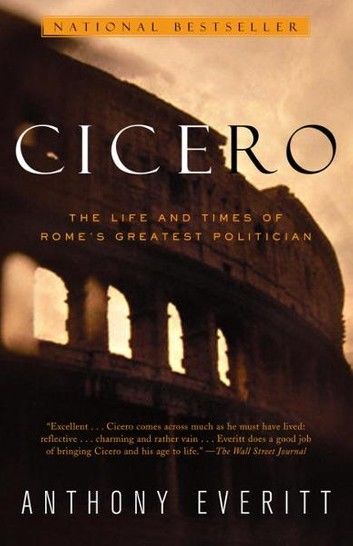| FindBook |
有 1 項符合
Cicero的圖書 |
 |
Cicero 作者:Anthony Everitt 出版社:Random House Publishing Group 出版日期:2011-11-30 語言:英文 |
| 圖書館借閱 |
| 國家圖書館 | 全國圖書書目資訊網 | 國立公共資訊圖書館 | 電子書服務平台 | MetaCat 跨館整合查詢 |
| 臺北市立圖書館 | 新北市立圖書館 | 基隆市公共圖書館 | 桃園市立圖書館 | 新竹縣公共圖書館 |
| 苗栗縣立圖書館 | 臺中市立圖書館 | 彰化縣公共圖書館 | 南投縣文化局 | 雲林縣公共圖書館 |
| 嘉義縣圖書館 | 臺南市立圖書館 | 高雄市立圖書館 | 屏東縣公共圖書館 | 宜蘭縣公共圖書館 |
| 花蓮縣文化局 | 臺東縣文化處 |
|
|
“All ages of the world have not produced a greater statesman and philosopher combined.”
—John Adams
He squared off against Caesar and was friends with young Brutus. He advised the legendary Pompey on his somewhat botched transition from military hero to politician. He lambasted Mark Antony and was master of the smear campaign, as feared for his wit as he was for exposing his opponents’ sexual peccadilloes. Brilliant, voluble, cranky, a genius of political manipulation but also a true patriot and idealist, Cicero was Rome’s most feared politician, one of the greatest lawyers and statesmen of all times. Machiavelli, Queen Elizabeth, John Adams and Winston Churchill all studied his example. No man has loomed larger in the political history of mankind.
In this dynamic and engaging biography, Anthony Everitt plunges us into the fascinating, scandal-ridden world of ancient Rome in its most glorious heyday. Accessible to us through his legendary speeches but also through an unrivaled collection of unguarded letters to his close friend Atticus, Cicero comes to life in these pages as a witty and cunning political operator.
Cicero leapt onto the public stage at twenty-six, came of age during Spartacus’ famous revolt of the gladiators and presided over Roman law and politics for almost half a century. He foiled the legendary Catiline conspiracy, advised Pompey, the victorious general who brought the Middle East under Roman rule, and fought to mobilize the Senate against Caesar. He witnessed the conquest of Gaul, the civil war that followed and Caesar’s dictatorship and assassination. Cicero was a legendary defender of freedom and a model, later, to French and American revolutionaries who saw themselves as following in his footsteps in their resistance to tyranny.
Anthony Everitt’s biography paints a caustic picture of Roman politics—where Senators were endlessly filibustering legislation, walking out, rigging the calendar and exposing one another’s sexual escapades, real or imagined, to discredit their opponents. This was a time before slander and libel laws, and the stories—about dubious pardons, campaign finance scandals, widespread corruption, buying and rigging votes, wife-swapping, and so on—make the Lewinsky affair and the U.S. Congress seem chaste.
Cicero was a wily political operator. As a lawyer, he knew no equal. Boastful, often incapable of making up his mind, emotional enough to wander through the woods weeping when his beloved daughter died in childbirth, he emerges in these pages as intensely human, yet he was also the most eloquent and astute witness to the last days of Republican Rome.
On Cicero:
“He taught us how to think."
—Voltaire
“I tasted the beauties of language, I breathed the spirit of freedom, and I imbibed from his precepts and examples the public and private sense of a man.”
—Edward Gibbon
“Who was Cicero: a great speaker or a demagogue?”
—Fidel Castro
From the Hardcover edition.
|










